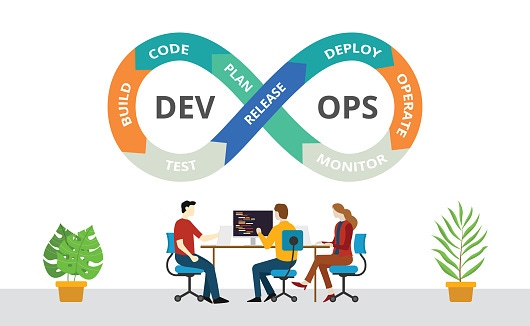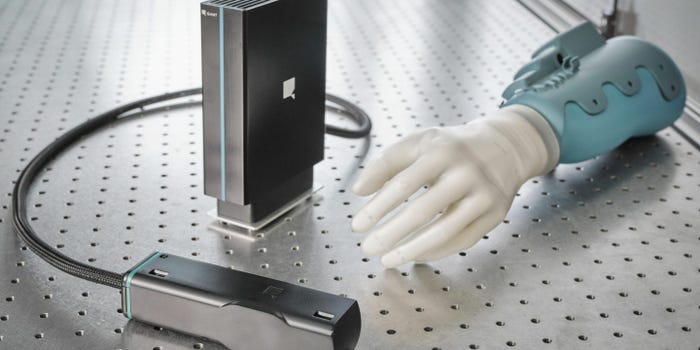Enterprises with DevOps automation are equipped to deliver on IoT's promises.
September 17, 2019

The “always-on” nature of the Internet of Things means that organizations can continuously update software based on feedback from connected devices. It just so happens, that’s exactly what DevOps facilitates. However, DevOps automation isn’t just complementary to an IoT initiative — it’s critical to its success.
“DevOps is essentially the automation of agile, and the ability to get to something close to zero latency development time,” said David Linthicum, chief cloud strategy officer for Deloitte Consulting. “DevOps is especially beneficial to the IoT because we need to get fixes out there that are critical to things people are doing every day,”
On a daily basis, people are using connected thermostats, vehicles and robotics, to name just a few. “If there’s some issue, the ability to do continuous integration deployment — fixing things as they come along and improving the system — is absolutely critical,” Linthicum says.
“If there’s an issue, you can fix it in a year-and-a-half versus right away,” Linthicum said using a car as an example. “That’s the difference between waterfall and DevOps. Unless you provide the fix right away, you’re going to go out of business.”
Michael Rowe, IBM Watson IoT program director for strategy and portfolio planning, also used a car as an example. Today, if your car starts making a strange noise, you have to take it to a repair shop. A mechanic must perform tests in an attempt to find the same noise, and then debug the problem and decide how to solve it. Compare that to a modern, highly instrumented vehicle with sensors throughout it and a communications device that can send information to the repair shop or a mobile app. The car can alert you to the problem and notify the repair shop so that the mechanic knows what the problem is and can have the part ready.
“It goes from reactive behavior to instrumented, proactive behavior,” Rowe said.
DevOps and IoT: A Competitive Differentiator
As customers become more accustomed to this type of service, they’ll come to demand it — and that’s why DevOps is necessary. “For a business to survive and thrive in a competitive market, it is crucial to constantly execute and update. The pressure on teams to make things work, to do new kinds of tech work, to provide solutions is a massive responsibility. Managing projects is just the beginning. Today, enterprise technology is both intelligent and deep. DevOps automation is able to execute on this better and deliver faster,” said Gerardus Blokdyk, chief executive officer of The Art of Service.
But it’s not just about meeting customers’ expectations. There’s business value in using DevOps’ methodologies to support IoT initiatives. “Continuous deployment allows me to continuously engage with users and add incremental value over time, thereby allowing me to change from selling a product to selling a service,” said Rowe.
Rowe explains further: “DevOps is about aligning the development of software and the operation of that software to fit business needs, and you do that by having constant feedback throughout the entire process. When you extend that into the IoT, that same feedback loop is extended into the physical world, and much of the value of these assets is now driven by the software and the data coming from the things. I think DevOps and the IoT come together nicely because it allows you to get feedback from real things, in the real world, and feed that back through the processes, into engineering, into product development, into new offering development, etc.,” Rowe says.
DevOps Is Good for IoT Security, Too
Connected IoT devices are a good fit for DevOps because they are always on, which means they are available to receive updates. Unfortunately, this means they are also targets for cyberattackers. DevOps automation can help here, too.
“DevOps not only looks at adding features, but also continuous improvement from a security perspective, and we need to consider that, too – using DevOps to deploy security updates incrementally and as fast as possible,” Rowe said.
The technology to secure IoT devices is already available. “It comes down to the people and culture to use the security. There aren’t many security engineers who understand DevOps and vice versa, because it’s so specialized. And they might not understand IoT systems, so it’s a matter of getting these groups together with the security building blocks that are already on the market,” Linthicum said.
Blokdyk agrees. “DevOps training is the starting point for an organization embarking on an IoT and DevOps journey, and businesses need to take a security-first approach and start with infusing security in their company culture.”
Addressing DevOps Cultural Challenges
Regardless of the type of applications organizations are building, the challenges associated with DevOps remain the same.
“The people and culture are mission critical. That’s where we’re stubbing our toes,” Linthicum said. “The technology works and has for a while, but it needs to be in the hands of those who believe that this will be beneficial to the company, beneficial to shareholders, beneficial to customers. It’s a rather drastic change for people who are dealing with technology in traditional ways.”
Blokdyk agrees. “Big data from IoT provides great opportunities for organizations to improve, but far too many companies suffer from reliance on legacy practices that are holding their development teams back,” he said. “Without feedback from start to finish, DevOps is no more useful for defining teams’ roles and responsibilities than not having DevOps. The breaking of silos and integrating teams is the basic obstacle that any company needs to overcome to achieve DevOps practices for IoT.”
But there is good news. “You have the opportunity to break down those barriers, understand what makes each side tick, resolve any issues, and move on to delivering more value to the business,” Rowe said.
About the Author(s)
You May Also Like


.png?width=700&auto=webp&quality=80&disable=upscale)
.png?width=300&auto=webp&quality=80&disable=upscale)


.png?width=300&auto=webp&quality=80&disable=upscale)